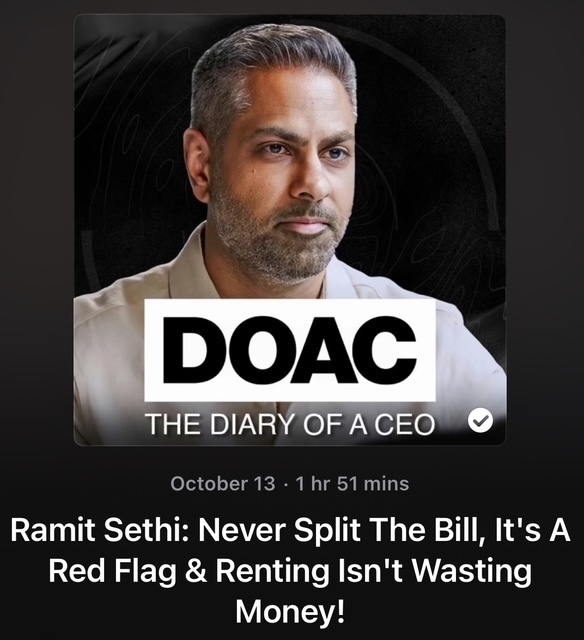
Another fantastic episode from one of my favorite podcasts! This one is packed with valuable insights and practical advice for initiating financial conversations. I couldn’t wait to share it with my husband as a foundation for us to have more productive discussions and plan our finances together. Enjoy the summary and takeaways below:
In this enlightening episode, the speaker delves into the intricate relationship between finances and personal relationships, particularly focusing on how financial stress can deeply impact emotional dynamics within families and couples. The discussion opens with an exploration of parental anxieties surrounding money, illustrating how these concerns can lead to emotional reactions, especially when children become aware of financial pressures. Parents often grapple with the fear that their financial behaviors might negatively influence their children's perspectives on money, leading to guilt and self-reflection when their children express desires for wealth.
To combat this cycle, the speaker emphasizes the importance of financial literacy, advocating for teaching children essential money management principles from a young age. Key principles include pursuing work that brings joy, investing consistently, and learning to enjoy money responsibly. The speaker highlights the necessity of fostering an entrepreneurial mindset in children by encouraging them to think creatively about how to earn money for their aspirations, thus promoting independence and resilience.
Additionally, the conversation underscores the significance of starting young with investments. Even small monthly contributions can help children develop good financial habits over time. The speaker suggests that early exposure to investing instills a sense of financial responsibility that can carry into adulthood.
The podcast also addresses the often-avoided topic of money in romantic relationships. Couples frequently sidestep financial discussions, leading to misunderstandings and unresolved conflicts. To counteract this, the speaker advocates for establishing regular “money meetings,” creating a safe space for open dialogue about financial goals, spending habits, and shared visions for the future. This proactive approach not only alleviates financial anxiety but also strengthens the relationship by fostering mutual understanding.
Moreover, the conversation touches on the common misconception that happiness is tied to a specific income level, often cited as $75,000. Newer research suggests that happiness continues to rise with income, which emphasizes the importance of personal fulfillment and defining one's own financial success. The speaker encourages listeners to invest in experiences that enhance life satisfaction rather than merely accumulating material possessions, promoting a life centered on values and meaningful moments.
The episode wraps up with a powerful reminder about the role of individuals in modeling positive financial behavior. By openly discussing money and demonstrating healthy financial practices, individuals can influence their families and communities, fostering a culture of understanding and proactive financial management. The speaker invites listeners to reflect on their financial habits and encourages them to engage in conversations that promote harmony and understanding within their households.
Key Takeaways
-
Emotional Impact of Financial Stress: Financial stress can provoke emotional responses, particularly in parents who fear negative impacts on their children.
-
Teaching Financial Literacy: It's essential to teach children financial principles early, including the importance of finding fulfilling work, automatic investing, and enjoying money responsibly.
-
Encouraging Entrepreneurial Thinking: Parents should engage children in discussions about earning money for their desires, fostering independence and creativity.
-
Investing Early: Starting investment habits young, even with small amounts, can cultivate financial responsibility and awareness.
-
Open Communication in Relationships: Establishing regular “money meetings” can help couples discuss financial matters openly, reducing misunderstandings and anxiety.
-
Shared Financial Vision: Couples should collaborate to create a shared financial vision, enhancing mutual understanding and support.
-
Redefining Wealth and Happiness: Happiness is not fixed at a certain income level; it can grow with increased financial resources, emphasizing the importance of personal fulfillment.
-
Investing in Experiences: Prioritizing spending on experiences rather than material possessions can enhance overall life satisfaction.
-
Modeling Positive Behavior: Individuals can influence their communities by demonstrating healthy financial behaviors and engaging in open discussions about money.
-
Invitation for Reflection: Listeners are encouraged to reflect on their financial habits and engage in conversations that promote harmony and understanding within their families.
This summary captures the essence of the podcast, providing insights into the complex interplay between finances and personal relationships.

Jill Saban
Contact Me



